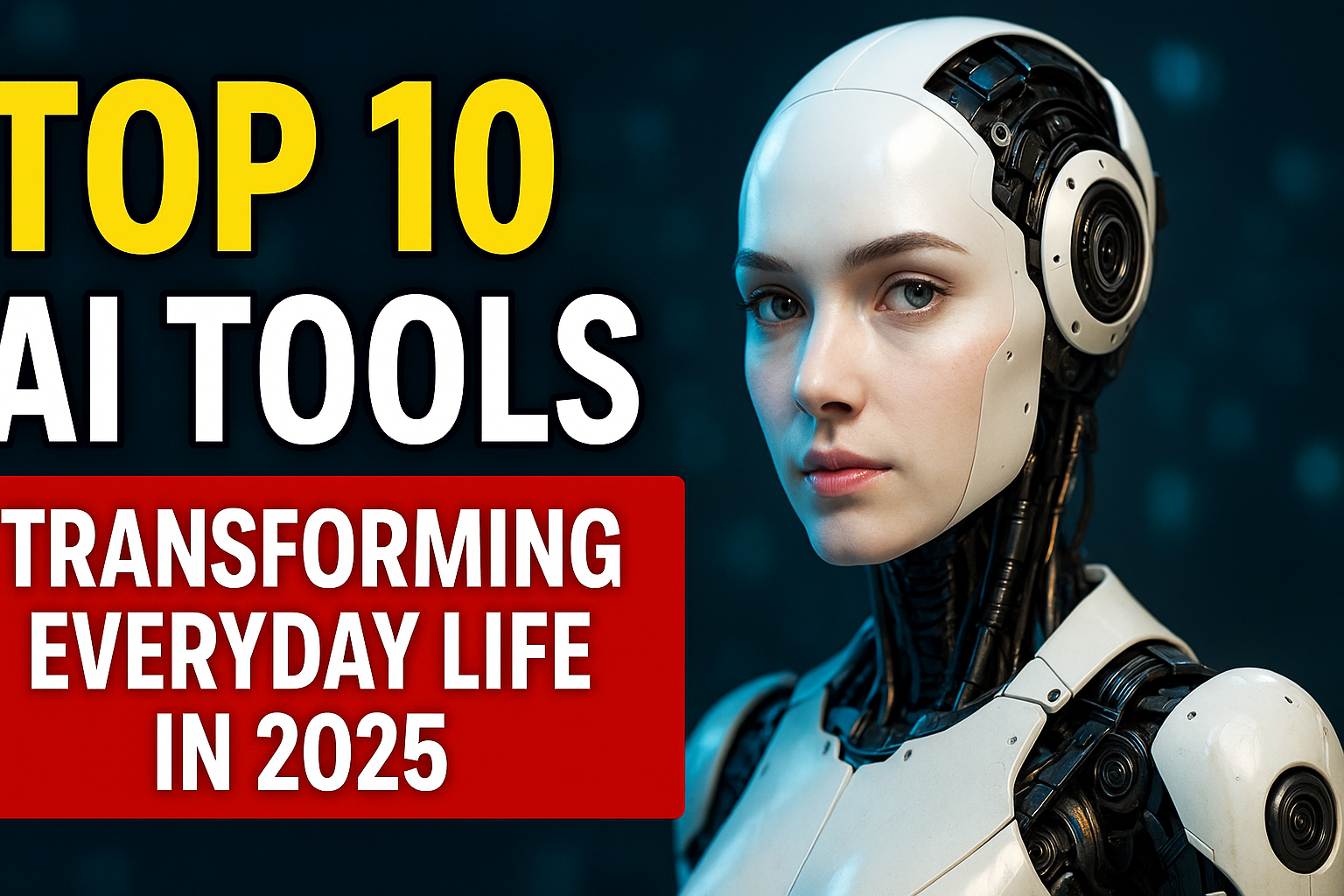
1.ChatGPT-4o (OpenAI)
Category: AI Assistant / Productivity
ChatGPT-4o serves as a versatile personal assistant, offering support in writing, research, coding, tutoring, and problem-solving. Its integration into multiple platforms enables users to streamline both professional and personal tasks, making high-level assistance accessible at any time.
2. Microsoft Copilot
Category: Automation / Productivity

Microsoft Copilot integrates AI deeply into Microsoft’s suite of applications (Word, Excel, Outlook, PowerPoint, Teams), automating routine tasks such as document drafting, email management, data analysis, and meeting summarization. It significantly enhances efficiency and productivity across various industries.

3. Google Gemini 1.5
Category: AI Assistant / Productivity
Google Gemini 1.5 offers contextual, real-time assistance across Google’s ecosystem (Search, Gmail, Docs, YouTube, Calendar). Its ability to understand user intent and context allows for highly personalized assistance, simplifying complex tasks and enhancing decision-making processes
4. Perplexity AI
Category: AI-Powered Search / Knowledge Retrieval

Perplexity AI transforms web search by providing verified, source-cited responses, combining real-time information with research-grade accuracy. It is rapidly becoming a trusted tool for students, professionals, and researchers seeking reliable data quickly.

5. Rewind AI
Category: Personal Knowledge Management / Productivity
Rewind AI creates a comprehensive digital memory by recording and indexing user interactions across devices. This allows individuals to retrieve any previous interaction or information instantly, vastly improving personal organization, learning, and information recall.
6. ElevenLabs
Category: AI Voice Technology / Accessibility

ElevenLabs delivers hyper-realistic AI-generated voices that are nearly indistinguishable from human speech. It powers virtual assistants, audiobooks, podcasts, customer service bots, and accessibility solutions, making high-quality voice synthesis available for numerous applications.

7. DALL·E 3
Category: AI-Powered Visual Content Creation
This AI platform enable users to create high-quality images, illustrations, and graphics from simple text prompts. They democratize design and creativity, providing tools for marketers, content creators, educators, and designers to generate professional visuals without requiring advanced artistic skills.
8. Rabbit R1
Category: Hardware AI Assistants

This next-generation AI device provide hands-free, voice-activated assistance for tasks such as calling, messaging, scheduling, and searching. They represent an early phase in the evolution of AI-powered wearable technology, potentially redefining personal computing in the coming years.

9. Abridge
Category: Medical AI / Healthcare Automation
These AI tools assist healthcare professionals by automatically transcribing and summarizing doctor-patient conversations into clinical documentation. They help reduce administrative burden, improve documentation accuracy, and allow medical practitioners to dedicate more time to patient care.
10. Poe (Quora)
Category: Aggregated AI Platforms / Knowledge Tools

Poe aggregates multiple leading AI models (including OpenAI, Anthropic’s Claude, and Meta’s LLaMA) into a single interface. Users can access varied perspectives from different models in real-time, facilitating deeper analysis, comparison, and research.
Conclusion:
In 2025, AI technologies are no longer confined to specialized sectors. They are actively transforming daily life across professional, personal, and healthcare domains by automating routine tasks, enhancing decision-making, and expanding creative possibilities. These tools are not replacing humans but empowering individuals to focus on higher-value activities by handling repetitive, administrative, or complex cognitive work more efficiently.


Leave a Reply